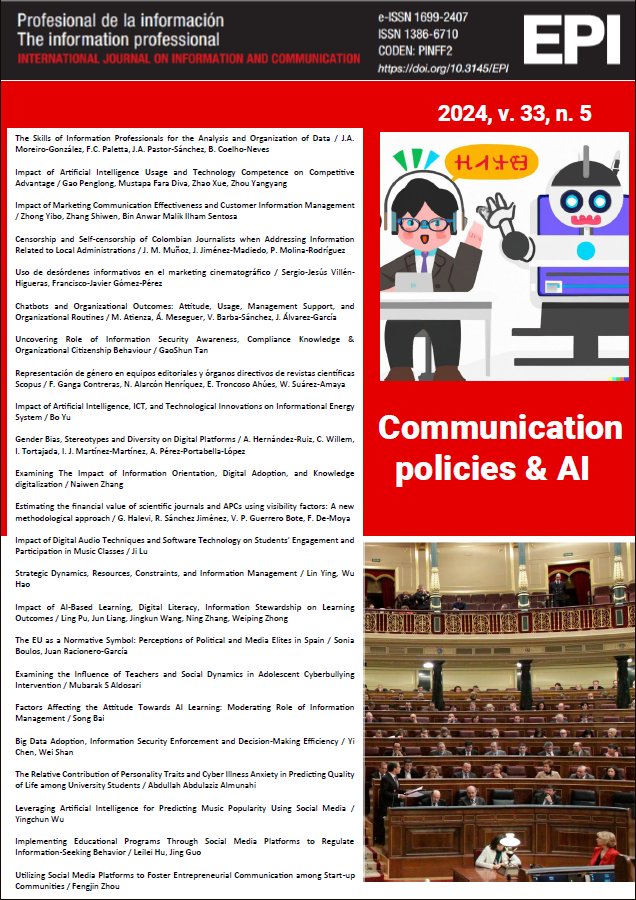Chatbots and Organizational Outcomes: Attitude, Usage, Management Support, and Organizational Routines
DOI:
https://doi.org/10.3145/epi.2024.0506Resumen
The rapid evolution of Artificial Intelligence (AI) and the imperative for companies to integrate it into their processes to maintain competitiveness is noteworthy. Specifically, chatbots stand out due to their increasing level of penetration. The utilization of this technology differs from previous advancements due to its implications for human interaction. Therefore, it is necessary to contribute to theoretical and empirical development with approaches that transcend particular perspectives to uncover the organizational scope and mechanisms of this technology. A theoretical model is proposed to analyze how attitudes towards chatbots and their usage affect business outcomes, with an emphasis on management support and the redesign of organizational routines. To test this model, a quantitative approach based on a survey design and the partial least squares structural equation modeling (PLS-SEM) technique is employed. Empirical evidence from a sample of 403 Spanish companies confirms a positive effect of attitudes towards chatbots, amplified by management support. Additionally, a positive relationship is observed between the use of chatbots and business outcomes, with a significant indirect effect through the redesign of routines, indicating that organizations must adapt to this disruptive technology for effective integration. It is concluded that the successful adoption of chatbots leads to improved business outcomes, and both academic and practical implications for technology management, digital transformation, and post-adoption strategy design are discussed.
Descargas
Downloads
Publicado
Número
Sección
License
Copyright (c) 2025 Profesional de la información

This work is licensed under a Creative Commons Attribution 4.0 International License.
Condiciones de difusión de los artículos una vez son publicados
Los autores pueden publicitar libremente sus artículos en webs, redes sociales y repositorios
Deberán respetarse sin embargo, las siguientes condiciones:
- Solo deberá hacerse pública la versión editorial. Rogamos que no se publiquen preprints, postprints o pruebas de imprenta.
- Junto con esa copia ha de incluirse una mención específica de la publicación en la que ha aparecido el texto, añadiendo además un enlace clicable a la URL: http://revista.profesionaldelainformacion.com
La revista Profesional de la información ofrece los artículos en acceso abierto con una licencia Creative Commons BY.





